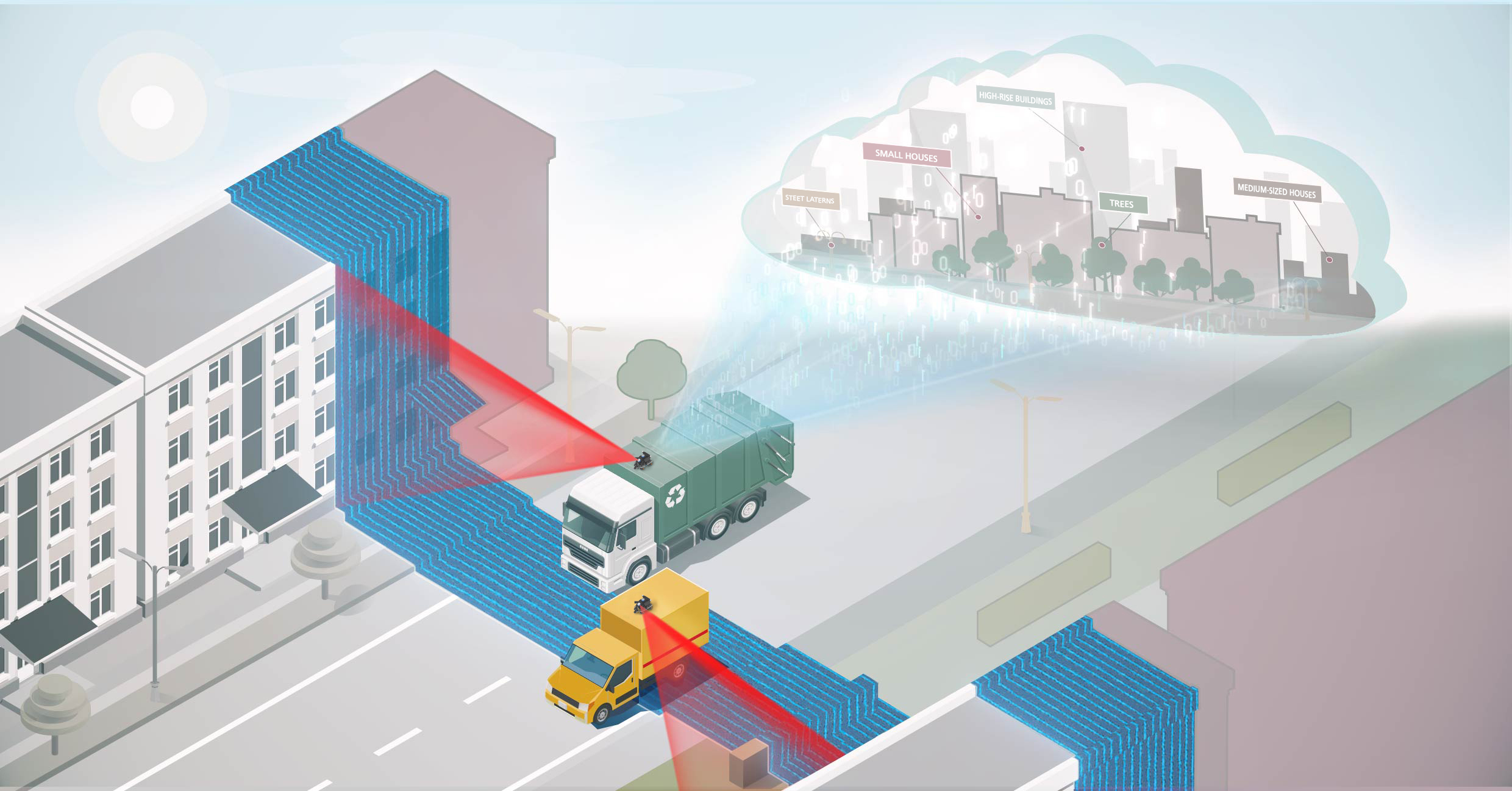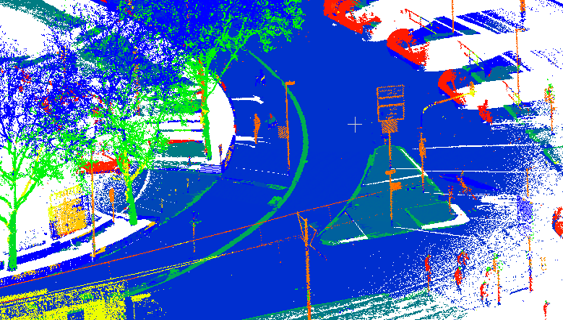MuSiS research project
The city as a digital twin
Constructing or planning complex urban environments requires a solid data basis. But the available planning data is often obsolete and incomplete. This is why Fraunhofer IPM and incontext.technology GmbH have joined forces to develop a process for creating a digital twin of urban environments quickly and with deep granularity. The idea behind the MuSiS research project is that measurement systems installed on taxis, busses and streetcars record their environment while the vehicles drive along their usual route, constantly collecting up-to-date data.


Urban spaces are forever evolving, and environmental data recorded today may already be obsolete by tomorrow. This poses a problem for urban construction projects and measures intended to improve sustainability and safety in inner city areas. Planning projects have been known to be based on land register plans that are many years out of date. To obtain data for specific use cases, detailed and very expensive measurements have to be taken. The availability of up-to-date, comprehensive infrastructure data would make planning processes for grid expansion, traffic planning or maintenance planning considerably more efficient. Ongoing measurements would make additional services possible, such as hazard maps for extreme weather conditions, real-time route planning (e.g. around roadworks) or routing visitors to large events. A city’s digital twin could provide data according to user group at any time.
Multisensor system collects data during regular traffic
The MuSiS project is paving the way for the granular digital recording of urban infrastructure. To implement this idea, a team at Fraunhofer IPM is developing a compact, multi-purpose measuring box that will record the environment in live traffic using laser scanners and cameras, while a sound level meter also records noise. The data will be anonymized while it is being recorded, so that people and vehicles cannot be traced back. The robust multisensor system will be easily mounted on most vehicles without much hassle. A positioning unit will ensure that the measurement data is linked to location information.
Several gigabytes per kilometer
The idea is to make the measurement data available for various applications in real time. As the sensors on a single survey vehicle collect several gigabytes of data per kilometer, this will require pre-processing and reducing the data on the vehicle. An artificial neural network (ANN) developed at Fraunhofer IPM is specially adapted to be able to process the data within the measuring box. Experts working at incontext.technology, Fraunhofer IPM’s industrial partner, are going to develop AI-based algorithms which will enable the automatic use and semantic enrichment of the data streams and create data models for the respective city’s digital twin.
Digital model of a city
Once the data has been processed, it will be made available for selected use cases for monitoring urban safety and infrastructure on behalf of specific user groups via apps and online portals. This will be based on the digital twin, the semantic model of an urban structure or environment that integrates sensor data coming from different systems, and which is trained by AI.
Further informationen
The MuSiS project (multimodal digital twin for a safe and sustainable city) is funded by the Ministry of Economic Affairs, Labor and Tourism’s Invest BW program.
Project partners
- Fraunhofer Institut for Physical Measurement Techniques IPM
- incontext.technology GmbH
incontext.technology GmbH: experts for smart monitoring
incontext.technology GmbH are experts for data interpretation in an industrial context. Smart monitoring refers to the continuous monitoring of physical systems for anomalies or errors, in order to be able to respond quickly and take appropriate remedial action. This can be done with automatic systems or by human action. Smart monitoring helps prevent errors and damage to occur in the first place – or at least to identify and remedy them more easily.
Associated partners
- Stadt Freiburg
- Freiburger Verkehrs AG
- Digital-Agentur Heidelberg GmbH
- Verband Region Rhein-Neckar